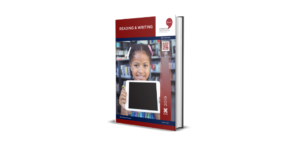Call for Papers: Reading & Writing Journal

This is an open invitation to contribute towards the Reading & Writing open access journal. Reading & Writing explores how literacy is defined, enacted, and promoted in a range of institutional, socio-cultural and disciplinary contexts’, particularly within Africa and other developing countries. It seeks to provoke debate, explores issues and posits solutions about literacy interventions, practices, and education. It focuses on and relates to transnational and trans local literacies associated with immigrants and mobile people in African settings. Reading & Writing is the Literacy Association of South Africa’s (LITASA) open-access, peer-reviewed journal.
Objective
The aim is to design literacy practices in education to stimulate community-based socio-economic transformation and development in Africa.
Theme
LITASA’s annual conference in 2020 carries the theme: literacy and children’s literature in contemporary Africa. While this call for papers is not for a dedicated special issue, papers may emanate from presentations at the conference or interested authors may be working on papers related to the theme. Reading & Writing would like to extend the ordinary range of topics covered by the journal to include issues concerning literature, such as access to reading materials within the African context, spanning from childhood to adulthood, as well as a focus on the complexities surrounding the development of literature, especially in indigenous languages.
Recommended Topics
While interested authors from any country are invited to submit their work for possible publication, Africa-related themes are especially encouraged in the context of the dire need to develop indigenous theories and understanding socio-cultural literacy in the African context. Both conceptual and empirical contributions are welcome. Interdisciplinary contributions, as well as those employing rigorous and novel methodological approaches, are particularly welcome. Topics of interest, among many other possibilities, include but are not restricted to:
- Literature and culture
- Literature in indigenous languages
- Literature and the development of cognitive/linguistic skills
- Literature, literacy, and academic achievement
- Literature and emotional intelligence and creativity
- Critical thinking
- Literature and vocabulary development
- Oral literature and listening skills
- Translation of literary texts
- Using texts in a literacy intervention
- Literature in a multimedia world
- Young Adult literature
- Analysing literary texts
- Creative writing
- Materials development
- Working with parents and communities to build a culture of reading
Submission Procedure
Prospective authors should note that only original and previously unpublished article manuscripts will be considered for peer review. Interested authors must consult the Journal Guidelines for Manuscript Submission at https://bit.ly/3gv0p9h before submission. For more details on the editorial procedures, go to https://bit.ly/2ZJSjCP. All submissions will be submitted to a rigorous double-blind peer review process, with both the Associate Editors acting as action editors and making the final decision for publication in consultation with the Journal Editor.
Manuscripts must conform to the Journal’s formatting and style requirements and may take the form of original theoretical, empirical, applied and policy submissions (6000 words in length excluding the title, abstract, references, figures and tables). The submission portal will be accessible on https://rw.org.za. All submitted papers will be reviewed on a double-blind, peer review basis. Papers must follow the Harvard style for reference citations.
Inquiries
Of course, we will be happy to provide you with any assistance during the submission and application process. Any queries regarding the submission process may be sent to Editor-in-Chief.
Editor-in-Chief
Naomi Boakye
Unit for Academic Literacy
University of Pretoria
South Africa
Email: editor@rw.org.za
